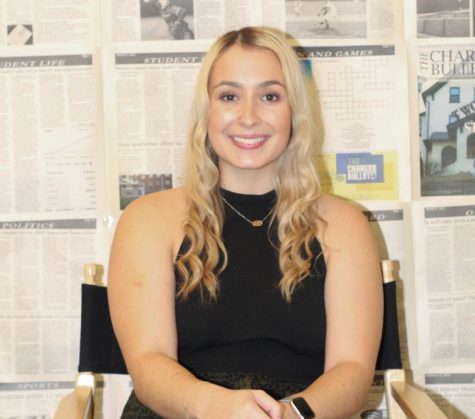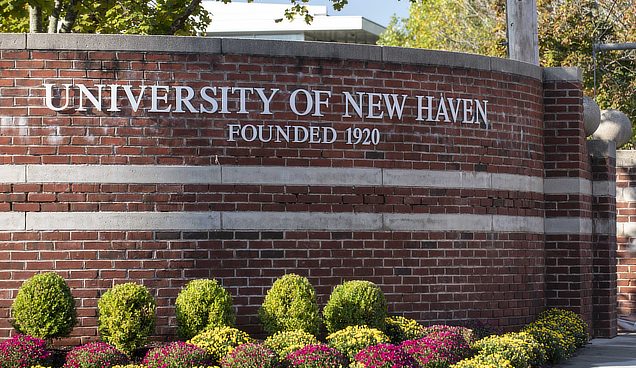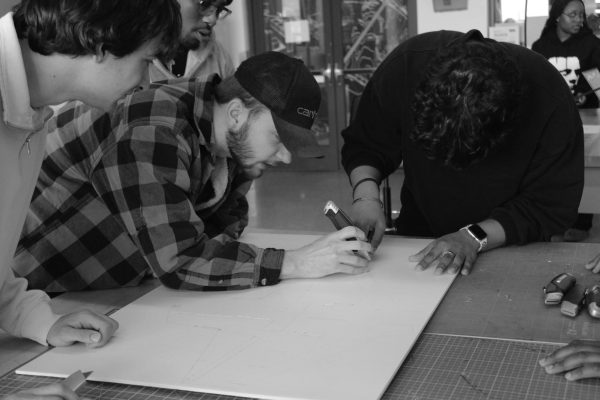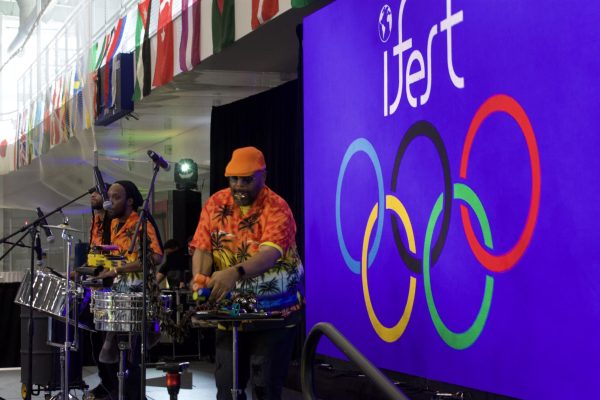Open forum held in response to remembrance ceremony remarks
In response to a comment made during the 9/11 remembrance ceremony on Sept. 10 in the Maxcy quad, an open forum was held in the Peterson Auditorium on Tuesday. With roughly 137 students attending, some doubled up in seats or sat on the auditorium floor.
The Undergraduate Student Government Association (USGA), the Myatt Center for Diversity and Inclusion (MCDI), Dean of Students office and the Muslim Student Association (MSA) hosted the event.
Ophelie Rowe-Allen, dean of students, and MCDI director Carrie Robinson gave opening remarks of the forum, where ground rules were set as to how to promote safe and respectful dialogue. Rowe-Allen led with a moment of silence with the intention of giving students a moment to breathe and reflect.
“We also want to heal our hearts and minds, build community and repair harm, that is why we are here,” said Rowe-Allen.
Robinson said that people’s intentions might not be to harm others, but the impact of their words or actions may still cause harm. She encouraged present students to be engaged, to challenge themselves to be uncomfortable; to be willing to take risks to speak their truth.
“We are not going to solve all the problems here today,” Robinson said. “There might not be closure. Actually, there probably shouldn’t be.” She said that the purpose of the gathering was to issue a call to action.
Laila Soliman, MSA event coordinator and director of communications, said that they were not surprised by the incident at the 9/11 ceremony.
“It has happened time and time again, and will probably happen again,” they said. “I want a plan in place… how will the school do better by us?”
Cora Cogill, a sophomore business management major and USGA senator-at-large, suggested that Recognized Student Organizations (RSOs) that engage in public speaking be required to have their speeches screened by advisors or other top-position faculty members.
She also suggested that the university create a website to educate students on the various cultures on campus.
“We may have been taught stuff wrong in the past,” said Cogill.
Hailey Perez, vice president of marine conservation society, said that the university should be more active than the students, and mentioned that an email sent after the event by university president Steven Kaplan neglected to mention the comments in question.
Others noted the school’s response. President of the Asian-American Student Union Rebecca Chan-Chao agreed, saying, “Our school as a whole has a tendency to be reactive [and not proactive].”
She said students need to not only check themselves and their peers but more importantly check the faculty because “they do have more power in their positions than we do.”
Michael Desir, senior music and sound recording major, supported Chan-Chao’s sentiment.
“When we approach conversations where the tone is up here [in front of others], we have to remember that the conversation has a context of pain for everyone, and we all grieve differently,” said Desir. “Tone-policing one another on the anniversary of such an event is ineffective. Not everyone is articulate on their pain, nor should we have to be–that’s why we hire professionals who study the work.”
Eve Hein, senior psychology student and treasurer of the American Criminal Justice Association (ACJA)––whose organization’s president delivered the speech–said self-education is an important step, and that “other people do not have to educate you.”
She also said that she, with members of the executive board, are pushing to implement monthly workshops or biweekly discussions for ACJA’s members, where they will address world events and issues within the criminal justice field.
Jillian Fiore, ACJA president, was in attendance; however, she did not speak at the forum. Her lack of response was a subject of the discussion.
In response to this, Rowe-Allen suggested students be patient.
Destiny Jenkins-Rubins, president of the National Association for the Advancement of Colored People (NAACP), said the forum was “not to punish you for your opinion or to make sure you are perfect, because no one here is perfect. Every single person here has made mistakes… but at the end of the day you hurt people and made them feel that their religion is moot.”
After the discussion about a public response from Fiore, Jenkins-Rubins asked on the microphone if Fiore would be willing to meet with MSA after the event. Fiore did not verbally comment. It is unknown if this is being worked out privately among RSOs.
Towards the close of the open discussion, USGA president Sofia Martinez, asked for the space to grow and work towards progress and apologized to MSA, Muslim and Arab students for providing a platform that caused them harm.
Shahd Omar, vice president of MSA, subsequently spoke on the behalf of MSA and forgave Martinez, saying that forgiveness is a pillar of Islam.
Other issues discussed during the forum included the lack of funding for diversity peer educators, making mandatory diversity training more extensive, or transitioning it into a three-credit course. Students also noted Kaplan’s absence from the meeting.
At the forum’s close, the USGA executive board launched an anonymous poll where attendees could post feedback, suggestions and action plans that can be reviewed later.
“These forums are not just a band-aid to fix it up,” said Martinez, addressing the purpose of this closing poll.
Students who were not present or able to use this poll are encouraged to attend USGA meetings, contact Martinez at usgapresident@newhaven.edu or the dean of students at deanofstudents@newhaven.edu.

Kelly Adkins is a senior communication major with a concentration in journalism. Kelly has been a contributing writer for the Charger Bulletin since 2019...











